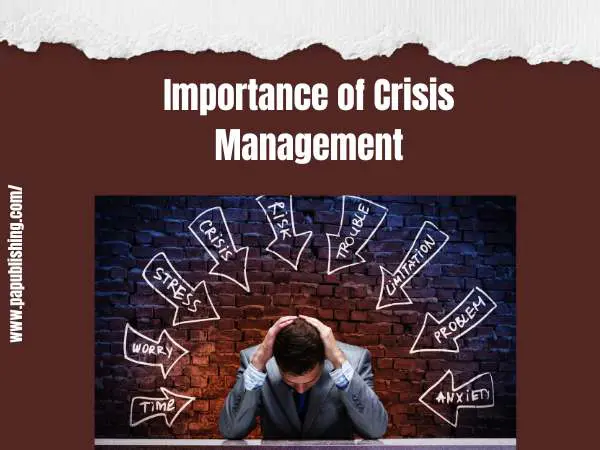Importance of Crisis Management for Small Business
In the entrepreneurship landscape, small businesses often struggle to navigate through challenging times. From unforeseen economic downfalls to natural disasters, crises can strike at any time and have the potential to disrupt business operations. To alleviate these damaging consequences, the importance of crisis management cannot be understated. About 49% of US companies have a formal communication plan.
This strategic planning outlines the proactive measures taken by small businesses to deal with internal or external threats to their sustainability. This blog demystifies why crisis management is important for small firms comprehensively.
What are the types of crises, and how do you manage them?
Different types of crises can pose serious damage to your company. A business crisis generally comprises these three factors:
- It threatens the survival of the organization.’
- This nuisance took the business by surprise as the managers were unprepared to encounter these events.
- It forces the company to make prompt and abrupt decisions in a limited time.
Let’s get into common types of crises briefly:
Financial Crises
Financial crises occur when a small company suddenly loses a large amount of money, which makes it difficult to meet financial obligations or debt services. Some factors can contribute to these economic challenges, such as loss of revenue, bankruptcy, inflation, currency devaluation, and sudden changes in market trends. These unexpected situations alleviate the company’s ability to serve its customers efficiently.
To deal with financial crises, companies must understand the importance of crisis management. For that, you should exercise prudent financial planning beforehand to recover these losses. Create contingency plans to find alternative funding sources to maintain your liquidity. To acquire diversified revenue streams, find clients that can offer emergency funds in the event of these unprecedented situations.
Technological Crises
Technological crises pose significant threats to businesses‘ digital infrastructure, customer trust, and regulatory compliance. These types of crises arise due to sudden system failures without warning, data breaches, IT disruptions, and related technological issues. It can compromise sensitive information and pose grave threats to the company’s reputation.
To manage these technological challenges, you must have backup systems in case your main website infrastructure is disrupted or crashes suddenly. Also, robust cybersecurity measures and prompt customer service during downtime preserve your organization’s reputation.
Personnel Crises
A personnel crisis happens when your employee or anybody in the organization becomes involved in unethical or illegal behavior, which impacts your company’s reputation. This problem is related to the employee’s conduct, and its handling is extremely significant to maintain your small business’s positive image in the public.
To combat this type of crisis, you must craft a balanced plan to deal with your human resources. For that, you can allocate a specific department that can address these issues more deeply. With the help of stakeholders, you can create plans that protect your business’s legal rights and reputation.
Importance of Crises Management
Crisis management is crucial, especially for small businesses. Here’s a quick overview of the importance of crisis management for small businesses.
Protecting Reputation
A crisis can affect an organization’s public image, which can take years to build and only moments to destroy. Research shows that areas that make businesses most vulnerable to crises include corporate reputation, cybercrime, and rumors.
By improvising crises effectively, businesses can preserve trust and credibility among customers, stakeholders, and the public. It involves a commitment to resolving issues and taking decisive actions to mitigate negative impacts on reputation.
Minimizing Financial Losses
From revenue decline to legal expenses, financial crises can affect the economic status of startups. As they already have limited resources, crisis management is of significant importance. Implementing insurance coverage, financial contingency plans, and cost-saving measures can cut down on financial risks and ensure business operations continuity.

Safeguarding Employees and Assets
During a crisis, ensuring the worker’s safety and safeguarding company assets are top priorities. Crisis management plans should include prompt emergency response, evacuation procedures, and communication channels to keep employees informed and safe. By prioritizing employee welfare and asset protection, businesses can appease potential harm during crises.
Preserving Business Functionality
Crises can disrupt normal business operations, leading to a loss of productivity. Effective crisis management is truly a game changer for keeping your business operations going. It involves developing continuity plans, backup systems, and alternative options to maintain essential services and operations during emergencies. By preferring business continuity, startups can minimize disruptions and cut down on the impact of crises on operations and profitability.

Wrap up of Importance of Crisis Management
In short, crises are unplanned situations that spread restlessness in business settings. These unexpected events may negatively impact your business reputation, financial situation, and your survival. Here, the importance of crisis management acts as an escort to pull your company out of these sudden risks.


